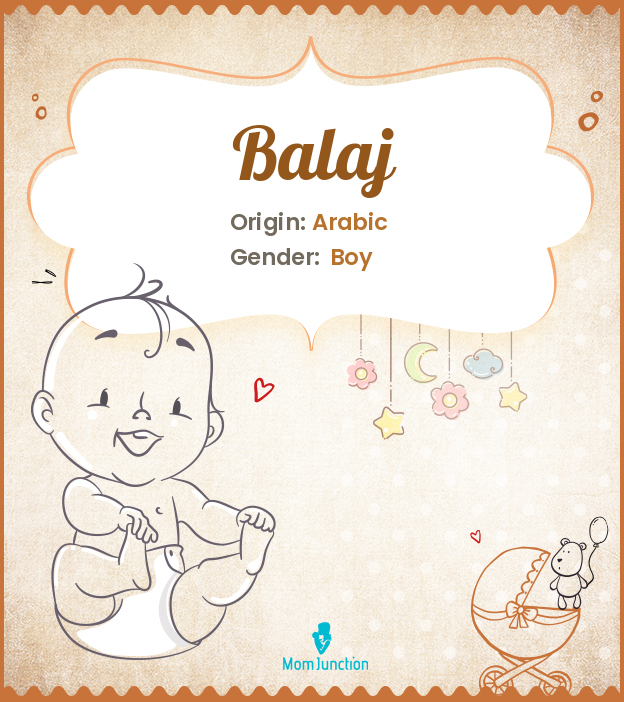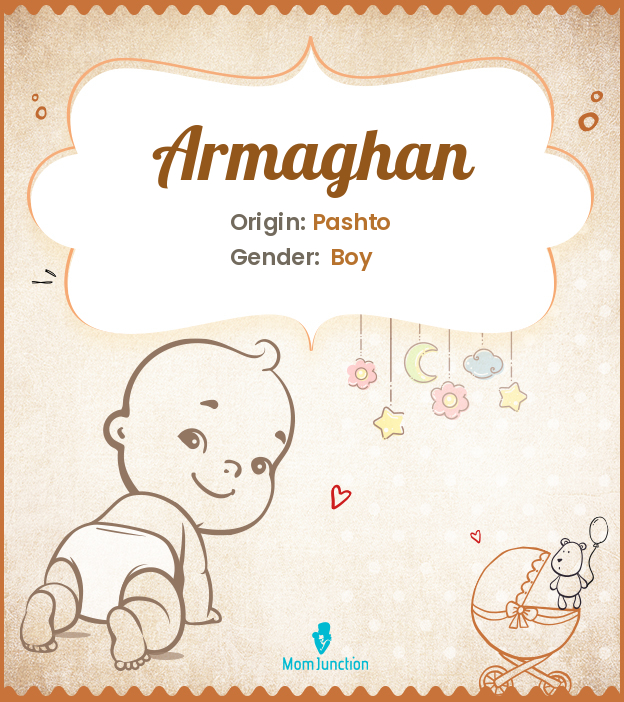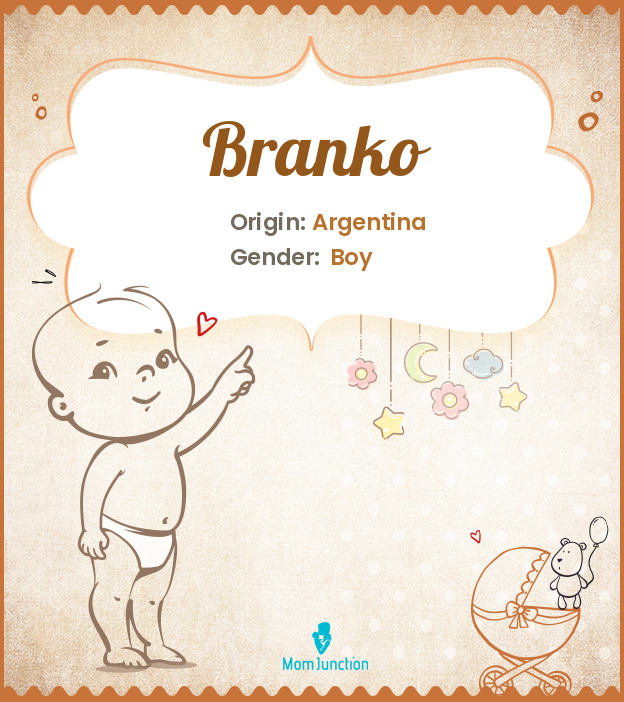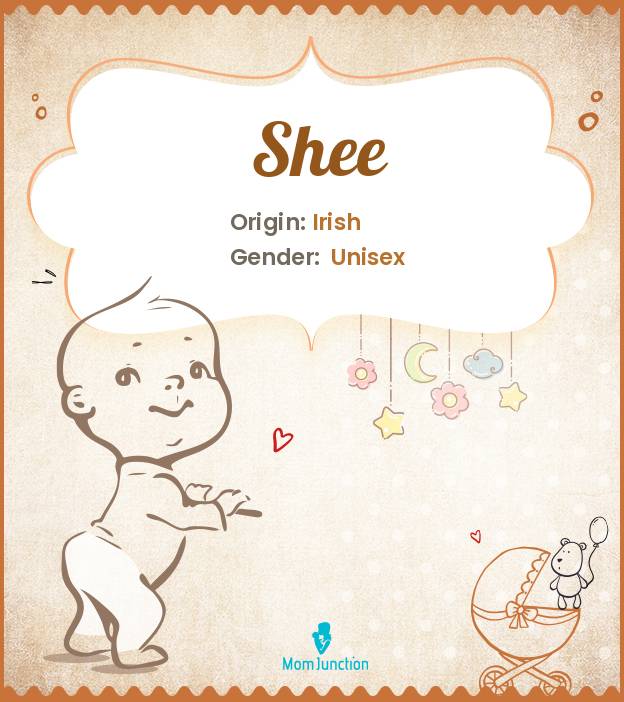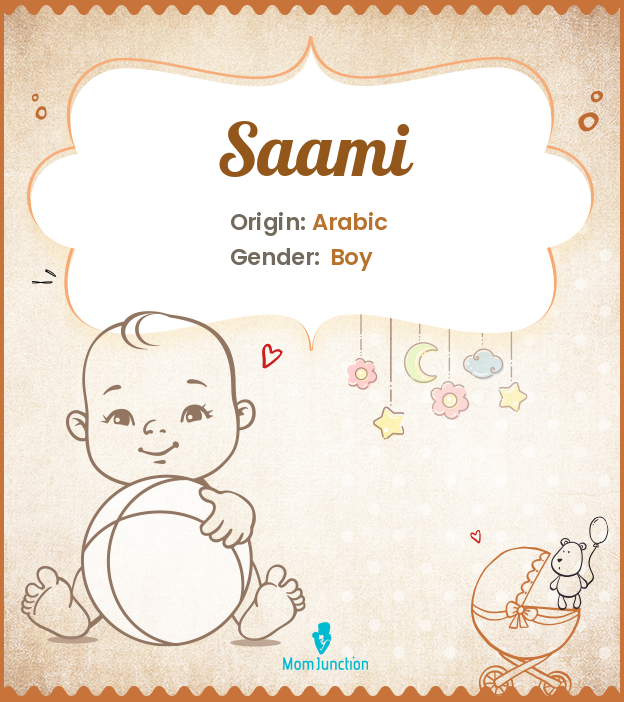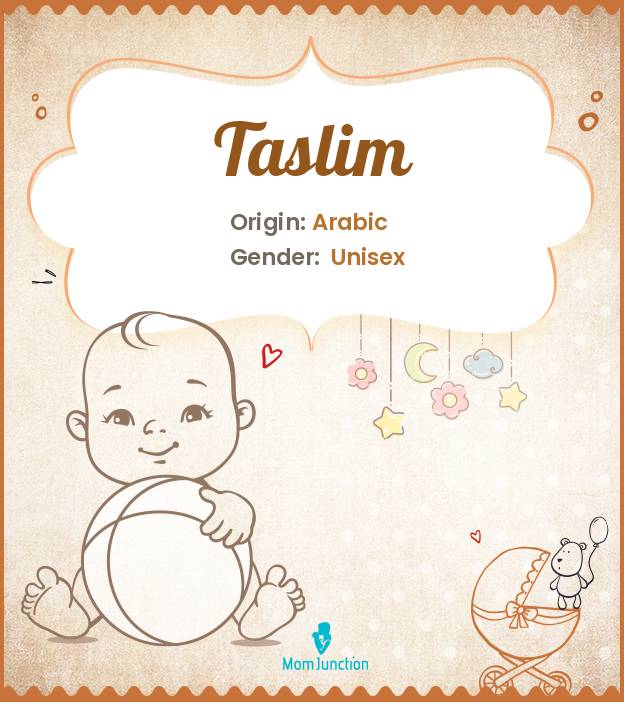
Image: ShutterStock
Norway has a versatile naming pattern. Their names are unique and often connected to nature, which could make Norwegian surnames or last names a perfect fit for your baby.

In ancient times, Norwegian names comprised three parts – the given name, patronym, and address. But over the years, the Norwegian naming scheme has changed to feature-fixed surnames. As a result, some popular Norwegian surnames ended with “-sdatter” or “-sdotter” and “-ssen” or “-sson,” meaning “daughter of” or “son of,” and evolved through the generations (1).
In this post, we have compiled some Norwegian surnames or last names with their meanings so you can pick the best one for your baby.
Key Pointers
- Traditional Norwegian last names include the given name, patronym, and address.
- They provide insights into Norway’s ancestry, occupations, geography, and heritage.
- Common suffixes include ‘-sdatter’ or ‘-sdotter’ and ‘-ssen’ or ‘-sson,’ signifying ‘daughter of’ or ‘son of.’
- These surnames also reflect elements of nature, such as Pollen, meaning ‘small bay’, and Aamodt, indicating a place where two streams meet.
List Of Popular Norwegian Surnames Or Last Names
1. Aaberg
It means ‘on the hill by the river’ and it is a toponymic name denoting someone who lived at the so-called place. The surname Aaberg gained some recognition due to Philip Aaberg, an American pianist and composer. His international popularity grew with a series of successful piano recordings, bringing attention to the unique surname.
2. Aaby
This is derived from a place called ‘Aaby’ or ‘Aby.’ It consists of the word ‘a’ that represents ‘river,’ and the Old Norse element ‘byr’ meaning ‘farm.’
3. Aakre
This is a toponymic name taken from any of the several places named ‘Akre.’ The word likely comes from the Old Norse element ‘akr’ meaning ‘plowed field.’
4. Aamodt
It refers to someone who lived in a place where two streams gather. This is derived from the Old Norwegian term ‘a’ meaning ‘river’ and the Norwegian word ‘mote’ meaning ‘meeting.’ The surname Aamodt gained significant recognition thanks to Aleksander Aamodt Kilde, a Norwegian World Cup alpine ski racer. His success in skiing has helped make the name more well-known internationally.
5. Arud
It is a combination of the Old Norwegian word ‘a’ meaning ‘stream’ or ‘river’ and the Archaic Norwegian word ‘rud’ meaning ‘clearing.’
6. Aune
It reflects a farm name found in several places in Norway. The name originated from the Old Norse word ‘aun’ meaning a ‘wasteland.’
7. Bang
It is likely an Old Norwegian word for ‘terrace’ or ‘flat hill-top.’ It is a toponymic name for those who lived at a farm that lay on a terraced land or a flat hill-top. On another note, the surname Bang has Scandinavian roots, derived from the Old Norse word banga, meaning ‘to pound’ or ‘hammer.’
8. Becken
This is a cognate of ‘Beck’ that is derived from the Middle English word ‘bekke’ or Old Norse ‘bekkr,’ both referring to a ‘stream.’ The surname Becken was first found in Basel, where it was closely associated with the name Beckel and the feudal society of early medieval Europe.
9. Calland
It is from any of the many farmsteads named ‘Kalland’ or ‘Kaland’ in Norway. The name is derived from the Old Norse word ‘Kalfaland,’ which is a combination of ‘kalfr’ meaning ‘calf’ and ‘land’ for ‘land.’ The surname Calland may have originated from Cathalan, King of Farney and is believed to mean Little Charles. The Calland family name was first found in County Roscommon, situated in central Ireland in the province of Connacht.
10. Dahl
It is from Old Norse root word ‘Dalr’ which means ‘valley.’ It is a common surname in Germany, Norway, Denmark, Sweden, and the Faroe Islands. Its German origins trace back to medieval Westphalia. There are around 11 places in Germany named Dahl. It is a popular name for the Author Roald Dahl, who is known for popular children’s books, like ‘Henry Sugar’ and ‘Matilda.’
11. Dale
It comes from the Old Norse word ‘dali’ that itself is derived from the Old Norse word ‘dalr’ meaning a valley. The name refers to those who lived on a farm or a place within a valley. However, the surname Dale originates from England’s Anglo-Saxon culture, referring to someone who lived in a valley or dale. The name is closely tied to Yorkshire, where it was first recorded. It symbolizes a connection to nature and the landscape.
12. Dammen
It likely comes from the name of a place called Drammen located in southeastern Norway. The name comes from the Norwegian word ‘dam’ meaning ‘pond.’
13. Dybdahl
This toponymic surname refers to someone from any of the several places by the name in Norway and Denmark. The name means ‘deep valley’ in Norwegian. In Denmark, most people with the surname Dybdahl or Dybdal trace their name to one of four village locations: Skyum, Sejerslev, Hellevad, or Stouby. Over 90% of individuals with this surname have origins in these areas.
 Trivia
Trivia14. Ege
It is a variant of Eike, a village in southwestern Norway. The name of the places from the Old Norse word ‘eiki’ meaning ‘oak grove.’ Ege is a surname with diverse origins. In German, it’s a variant of Eck, while in Norwegian and Danish, it relates to Eike or oak tree. In Turkish, it can mean guardian, elder, or refer to the Aegean region, symbolizing a connection to the Aegean Sea (2).
15. Elden
This is a toponymic name taken from a name of a river or place. The name comes from the Old Norse word ‘eldr’ meaning ‘fire’ or ‘flame.’
16. Elstad
This is a toponymic name that comes from the name of several places by this name. The name is a combination of the male name ‘Eilifr’ or the female name ‘Eldfridr’ with the Old Norse word ‘stadr’ meaning ‘farmstead.’
17. Enberg
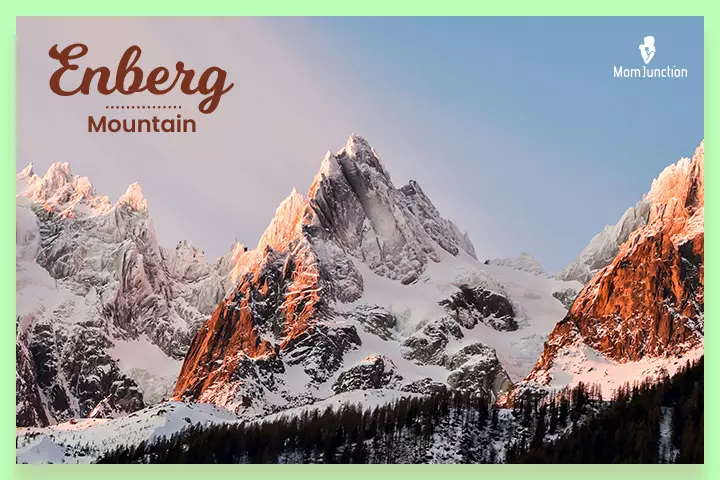
It is derived from Old Norse elements ‘einir’ meaning ‘juniper’ and berg meaning ‘hill’ or ‘mountain.’ The name is thus a toponymic one.
18. Fadness
This surname comes from the name of place in Hordaland county of Norway. It contains the Norwegian words ‘ferga’ meaning ‘to ferry’ and ‘nes’ meaning ‘headland.’
19. Falla
It refers to a farm that was named so because it was likely a location for landsides. The name is derived from the Norwegian word ‘fall’ meaning ‘fall.’ The surname Falla traces back to the Norman Conquest of 1066, possibly originating from Falaise, Normandy. Early records show the Falla family in Midlothian, where they held land granted by Duke William of Normandy. They established a notable presence in the region from early times.
20. Fehn
It is derived from a place called Fen in Norway. The name likely comes from the Old Norse word ‘Favin,’ where the first element ‘vin’ means ‘meadow.’ The first element is of unknown origin.
21. Fiske
It is derived from Old Norse elements ‘fiskr’ meaning ‘fish’ and ‘vin’ meaning ‘meadow.’ It denotes someone from a farm with the name or could be an occupational name for a fisherman. The Fiske surname traces back to Old Norse origins, derived from Fiskr (meaning fish). According to Burke’s Peerage, the Fiske family has flourished in Norfolk and Suffolk since the Domesday Book. Legend ties their arrival to Olaf Tryggvason’s forces at the Battle of Maldon in 991 A.D.
22. Flaa
It originated from Old Norse elements ‘fla’ meaning ‘plain’ or ‘terrace.’ It is a toponymic name referring to someone who lived on a farm of that name.
23. Fure
It refers to ‘pine’ or ‘fir’ in Norwegian and denotes someone who lived along a farmstead of that name. The surname Fure originated in Austria, gaining prominence in medieval society. It derives from the German word feuer, meaning ‘fire,’ and was likely an occupational name for someone working with fire, such as a smith or fire keeper. This surname reflects a strong connection to traditional trades.
24. Gaarder
It is a toponymic surname for someone from any of the several places of this name in Norway. The name comes from the word ‘Garder’ that comes from the Old Norse word ‘gard’ meaning ‘farm.’ It is derived from multiple farmsteads in southeastern Norway named Gårder and reflects a connection to rural life and farming heritage (3).
25. Gill
It comes from the names of the several farmsteads in Norway. The name ‘Gill’ comes from the word ‘Gil,’ which is derived from Old Norse and means ‘ravine.’
26. Granberg
This is derived from Old Norse elements gran meaning ‘spruce’ and ‘berg’ meaning ‘hill’ or ‘mountain.’ This surname is likely a toponymic one. The surname Granberg is a habitational name derived from places named Grünberg. It traces its origins to Baden, Germany. Granberg reflects a connection to green hills or mountainous regions.
27. Greseth
It comes from the names of a few farmsteads located in Norway. The name is from the Old Norse word ‘grjot’ meaning ‘stone’ and ‘setr’ meaning ‘farmstead.’
28. Grimsrud
This surname is derived from the Old Norse personal name ‘Grimr’ meaning ‘man with a helmet or mask’ and ‘rud’ meaning ‘field.’
29. Grinde
It is a toponymic name for someone from a Norwegian village of the same name. The name is taken from the Old Norse element ‘grind’ meaning ‘gate.’ Grinde is believed to have originally been a nickname for a tall or large person, later evolving into a surname. It was first recorded in Burgundy
30. Gronlund
It is a combination of the Norwegian words ‘gronn’ meaning ‘green’ and ‘lund’ meaning ‘grove.’
31. Groven
It comes from the Old Norse element ‘grof’ meaning ‘hollow’ or ‘pit.’ It is likely a toponymic name for someone who came from a farmstead of the same name.
32. Gulseth
It is derived from the Old Norse personal name ‘Guli’ meaning a ‘farmstead.’ Gulseth is also the name of a suburb in Skien, a city in Norway.
33. Hagen
This last name is either derived from the Old Norse element ‘Hagi’ or Old Dutch ‘Hago,’ both referring to ‘pasture’ or an ‘enclosure.’
 Trivia
Trivia34. Hall
It refers to a hall. The name was adopted by those who lived or worked in a hall or a manor, a house of a medieval noble. The surname Hall originated in Lincolnshire, England, after the Norman Conquest of 1066. The family descended from Earl Fitzwilliam, who held lands at Greatford Hall. Hall became notable through its connection to this early lineage.
35. Haugen
It is a toponymic name and comes from the Old Norse element ‘haugr’ meaning a ‘hill.’
36. Horn
This is derived from the Germanic word ‘horn’ meaning a ‘horn.’ It refers to a family line whose profession was to carve objects out of a horn, or who played a horn. The Horn family is a Swedish noble family with roots tracing back to the 14th century. The surname Horn originated in the region between the North Sea, Germany, and Belgium—present-day Netherlands. Historically, they became prominent in Finland and Sweden.
37. Hove

It is from the Old Norse element ‘hof’ meaning a ‘place of worship.’ The name was quite commonly given to farmsteads.
38. Hoye
The name is derived from the Old Norse word ‘haugr’ meaning a ‘mound’ or ‘hill.’ This name was likely of those who lived on farmsteads of the same name. The surname Hoye originated in Tipperary, South-central Ireland, in the province of Munster. Established in the 13th century, the family held an ancient seat at Ballymackeogh. It reflects deep historical roots in Irish heritage.
39. Ihle
This surname is derived from the Old Norse word ‘ila’ meaning ‘spring’ or ‘well.’
40. Island
It is of uncertain origin and is believed to be a combination of the Norwegian words ‘is’ meaning ‘ice’ and ‘land’ meaning ‘land.’
41. Jahr
It is a toponymic name for someone from the place called ‘Jar’ in Norway. The name is derived from the root word ‘jadarr’ of Old Norse origin meaning ‘rim’ or ‘edge.’
42. Jordahl
This surname is derived from the Old Norse elements ‘Hjo’ meaning ‘the shining river’ and ‘dalr’ meaning ‘valley.’
43. Kalberg
It denotes a farm name that is derived from the Norwegian words ‘kald’ meaning ‘cold’ and ‘berg’ meaning ‘mountain.’
44. Kampen
It is a toponymic name referring to someone from the city of Kampen in Norway. The name comes from the Norwegian element ‘kamp’ meaning ‘boulder’ or ‘round.’ In another sense, Kampen is a Norwegian surname with origins in the German region of Westphalia. It was historically a local name tied to specific places.
45. Kile
This surname is derived from the Old Norse word ‘kill’ meaning ‘wedge’ or ‘narrow bay’ or ‘inlet’ and is linked to several farmsteads named Kile. It’s also an Americanized form of the German surname Keil. In Scotland and England, Kile is a variant of Kyle, adding diverse cultural roots to its meaning (4).
46. Kise
It is a toponymic name derived from the Old Norse word ‘Kisi’ meaning ‘gravel.’ The Norwegian surname Kise has roots in Holland, where it gained prominence through various influential families. It was first recorded in Amsterdam, a 13th-century town governed by the Lords of Amstel. The name reflects historical status and regional influence.
47. Kjos
This is a derivative of Old Norse word ‘kjoss’ meaning ‘narrow valley’ or ‘narrow bay.’ The name is a toponymic one since it is also the name of a place in Norway.
48. Klepp
It is a toponymic name derived from ‘kleppr’ of Old Norse origin meaning ‘cliff’ or ‘bluff.’ Klepp is the name of several locations in Norway.
49. Kleve
A toponymic name derived from the Old Norse word ‘kleif’ meaning ‘cliff.’ The Norwegian surname Kleve may trace its roots to Cleves (Kleve), a historic town in northwestern Germany near the Dutch border. Once the capital of a duchy, it now serves as the district capital of Kleve in North Rhine-Westphalia. This connection highlights a blend of cultural and geographical heritage.
50. Kolden
It is derived from the Old Norse word ‘kollr’ meaning ‘rounded mountain top.’ It is also the name of a place in Norway. The surname Kolden has German origins, derived from Middle Low German kolt (cold), possibly a nickname for an unfriendly person. It may also be a shortened form of Koldenhof, meaning “cold farm” in Mecklenburg. In Norway, Kolden likely evolved as a habitational name linked to cold or remote farm areas (5)
51. Korsmo
The name is a combination of the Old Norwegian words ‘korz’ meaning ‘crossroads’ and ‘mo’ meaning ‘sandy meadow.’ It is also the name of a place in Norway.
52. Kvam
It is derived from the Old Norse word ‘hvammr’ meaning ‘small valley.’
53. Landvik
It is a toponymic name that comes from the name of a town in Norway. The name is derived from the Norwegian language and means ‘land inlet.’
54. Losnedahl
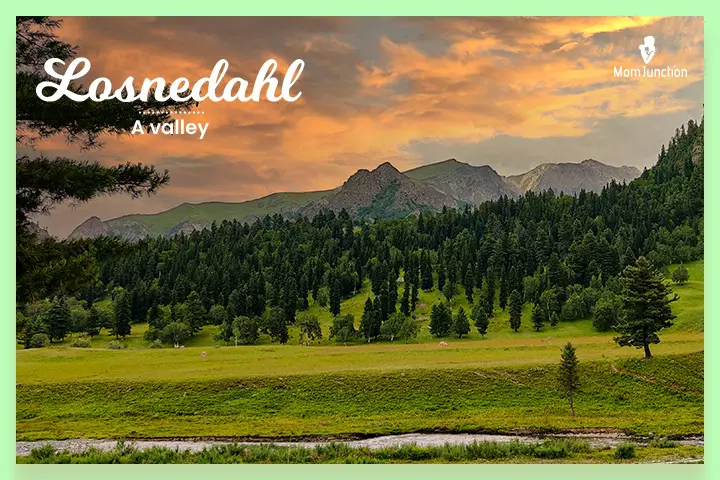
It is derived from the Norwegian elements ‘Losna,’ which is the name of several places in Norway, and ‘dahl’ meaning ‘valley.’
55. Lund
It refers to a person who lived along a grove of trees. The name is derived from the Old Norse word ‘lundr’ meaning ‘grove.’ Lund is a Scandinavian surname of Norwegian, Danish, and Swedish origin, meaning ‘grove’ in North Germanic languages. It is also found in English contexts. In Norway, the surname often reflects a family’s connection to nature or places named Lund.
56. Manger
This surname refers to someone who came from a place called Manger in Norway. The name is derived from the Old Norse elements ‘mar’ meaning ‘seagull’ and ‘angr’ meaning a ‘fiord or an inlet.’ The surname Manger originated in Wiltshire, derived from the Anglo-Saxon word mancgere, meaning a high-class merchant. Historically, it referred to respected traders in society.
57. Malmin
It is from the Old Norse elements ‘malmr’ meaning ‘sand’ or ‘gravel’ and ‘heimr’ meaning ‘farmstead’ or ‘homestead.’ The surname Malmin originated in Kent, where the family held a seat as Lords of the Manor. This reflects the name’s historical significance and noble roots.
58. Morken
It is derived from Old Norse word ‘mork’ meaning ‘wood.’ It is a toponymic name and the name of several places. The surname Morken can be linked to the anglicized form of the Gaelic Ó Murcháin, meaning ‘descendant of Murchán,’ a diminutive of Murchadh (6).
59. Naas
It is derived from Old Norse word ‘nos’ meaning ‘nose,’ and refers to a nose-like formation of the landscape.
60. Narum
This surname is derived from the Old Norse elements ‘nor’ meaning ‘narrow passage’ and ‘heimr’ meaning ‘home.’
61. Nerby
It is a toponymic name for someone from the several places of the name in Norway. The name is derived from the Old Norse word ‘Nedribyr,’ which means ‘the lowest farm.’
62. Ness
This surname is from the Norwegian word ‘nes’ meaning ‘headland’ and denotes a person who lived at a headland or promontory. The surname Ness has roots in ancient Scotland, originally used by descendants of the Pictish people. It referred to families living in places called Ness in both Scotland and England. Over time, it became a common Norwegian surname, reflecting similar geographic origins.
63. Odden
It is the name of several farmsteads in Norway. The name is derived from the Old Norse word ‘oddi’ meaning ‘headland.’ The surname Odden traces back to the ancient Anglo-Saxon tribes of Britain. It originally referred to families from Oldham, Lancashire. While rooted in England, its use later spread, even influencing names in Norwegian culture.
64. Okland
It is a toponymic surname for those who hailed from Okland or Aukland. The name is a combination of the Norwegian words ‘auka’ meaning ‘increased’ and ‘land’ meaning ‘land.’
65. Omdahl
This toponymic name is the name of several farmsteads in Norway. The name is derived from the Old Norse word ‘Almdalr’ meaning ‘elm valley.’
66. Ottum
The name comes from the Otta river. The name ‘Otta’ comes from Old Norse and means ‘to frighten.’ The name is likely a toponymic one.
67. Oyen
It is the name of several farmsteads in Norway. This surname originates from the Norwegian word ‘oy’ meaning an ‘island.’ The surname Oyen has Flemish, Dutch, and North German origins, often linked to places called Oijen in the Netherlands. It’s also a topographic name for someone living near a water meadow (7).
68. Pollen
It is from the Old Norse root word ‘pollr’ meaning ‘pond’ or ‘small bay.’
69. Ranum
It is a variant of the surnames ‘Ranheimr’ or ‘Randheimr’. These names are a combination of the Norwegian elements ‘rani’ means ‘nose’ and ‘heimr’ means ‘home.’
70. Rike
It is the name of several farmsteads in Norway. The name is derived from the Old Norse word ‘riki’ meaning ‘rule’ or ‘power.’
71. Rinde
This surname denotes to ancestors who hailed from the farms named with the word ‘rind’ meaning ‘ridge’ or ‘bank’ in Norwegian.
72. Rosdahl
This refers to a farm name and is derived from the Old Norse elements ‘rud’ meaning ‘clearing’ and ‘dahl’ meaning ‘valley.’
73. Selland
It is the name of several farms in Norway. The name comes from the Old Norse elements ‘selja’ meaning ‘willow’ and ‘land’ for ‘farm’ or ‘land.’
74. Skagen
The name comes from the Old Norse word ‘skagi’ meaning ‘headland.’ It is a toponymic name referring to someone who lived at a farmstead located at a headland or promontory. Skagen is a town in northern Denmark, located on the Skagen Odde peninsula in Nordjylland. The surname Skagen likely originated from this region, reflecting a connection to the town’s history and geography.
75. Skjeggestad
It is a toponymic name and refers to someone from a place of the same name in Norway. The name is a combination of the Norwegian words ‘skjegg’ meaning ‘beard’ and ‘stad’ meaning ‘place’ or ‘town.’
76. Solberg
This refers to a name of place. The name is taken from the Old Norse elements ‘sol’ meaning ‘sun’ and ‘berg’ meaning ‘mountain.’
77. Stenberg
Stenberg is one of the Scandinavian last names commonly found in Sweden and Norway. The name comprises the words ‘sten’ meaning ‘stone’ and ‘berg’ meaning ‘mountain.’
78. Stien
It is the name of several farmsteads in Norway. The surname is derived from the Norwegian element ‘stig’ meaning a ‘trail’ or ‘path.’
79. Storstrand
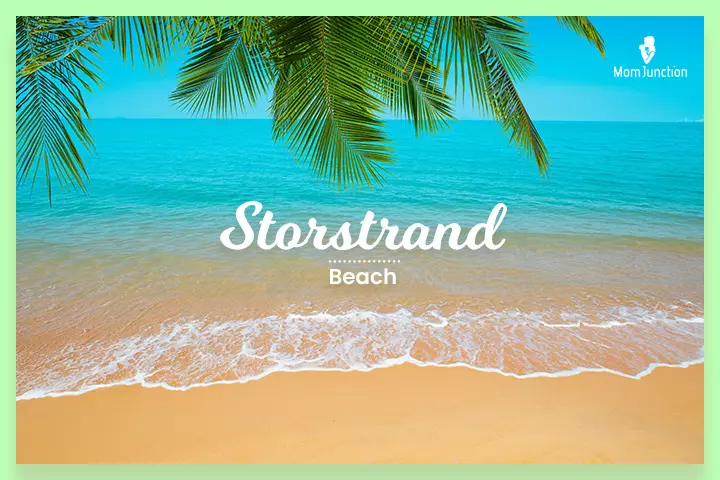
It is a combination of the Norwegian words ‘stor’ meaning ‘big’ and ‘strand’ meaning ‘beach.’ It is a toponymic name and refers to someone from any of the several farmsteads of its name in Norway.
80. Sund
It is the name of several farmsteads in Norway. The name is taken from the Old Norse word ‘sund’ meaning ‘strait.’ It symbolizes living near a water passage. In English, Sund also refers to a ‘healthy’ or ‘prosperous’ person or someone residing by a strait (8).
81. Tanberg
It is derived from any of the farms in eastern Norway. The name comes from the Old Norse element ‘thorn’ meaning ‘thorn bush’ and ‘berg’ meaning ‘mountain.’
82. Tanck
It is a short form of a personal name ‘Thankmar’ of German origin and likely means ‘famous for his spirit.’
83. Tande
It comes from the name ‘Tandar,’ denoting any of the farms with the same name in Norway. The name comes from the Old Norse word ‘tonn’ meaning ‘tooth.’
84. Teig
It refers to someone who hailed from regions with this name in Norway. The name is derived from the Old Norse word ‘teigr’ meaning ‘strip of land.’
85. Tenold
It is derived from the Old Norse word ‘Tunhvall,’ which is a combination of the Old Norse words ‘tun’ meaning ‘enclosure’ and ‘hvall’ meaning a ‘small hill’ or ‘rise.’ The name is a toponymic one and is the name of a few farmsteads in Norway.
86. Ulberg
It denotes a family line who adopted the name from the Old Norse elements ‘ulfr’ for ‘wolf’ and ‘berg’ for ‘mountain.’
87. Ulven
It refers to any of the several regions named Ulven in Norway. The name is derived from the Old Norse elements ‘ulfr’ meaning ‘wolf’ or ‘alfr’ meaning ‘gravel’ and ‘vin’ for ‘meadow.’
88. Ure
It is derived from a place in the Hordaland county of Norway. The name is taken from the Old Norse word ‘urd’ meaning ‘rock-strewn slope’ and ‘vin’ meaning ‘meadow.’ The surname Ure originates from Ayrshire, a historic county in southwestern Scotland’s Strathclyde region. It has Gaelic roots, connecting to the area’s rich heritage.
89. Urness
This surname is a combination of the Old Norse words ‘urd’ meaning ‘scree’ and ‘nes’ meaning ‘headland.’ It is a toponymic name referring to someone from such a region.
90. Valen
It comes from the Old Norse word ‘vadill’ that refers to a ‘ford,’ which are shallow waters. The name denotes those who lived in any of the places with the name in Norway.
91. Valle
It comes from the Old Norse word ‘vollr’ meaning ‘field’ or ‘meadow.’ It refers to someone hailing from any of the places with this name in Norway.
92. Velde
It is a habitational name taken from ‘Velle’ that is derived from Old Norse ‘vollr’ meaning ‘meadow’ or ‘field.’
93. Velten
It refers to any of the several farms in the Hedmark county of Norway. The name comes from the Norwegian word ‘Velte’ meaning ‘log pile.’
94. Vik
It comes from Old Norse and indicates a small bay or water inlet. The name is toponymic one and refers to someone who hailed from any of the several farms with this name in Sweden and Norway.
95. Waag
The name comes from the word ‘Vag’ that comes from the Old Norse word ‘vagr’ meaning a creek or a bay. The name denotes someone who lived in a creek or bay, mainly in the Nordland county of Norway.
96. Wahl
It comes from the name of several farmsteads in Norway. The name comes from the Old Norse word ‘vadill’ meaning ‘shallows’ or ‘ford.’ The surname Wahl may originate from the German word Wahl, meaning ‘election’ or ‘choice.’ It could also stem from Yiddish, where Wahl refers to ‘from Italy.’ In a Norwegian context, Wahl often denotes a family’s geographical or ancestral link.
97. Wang
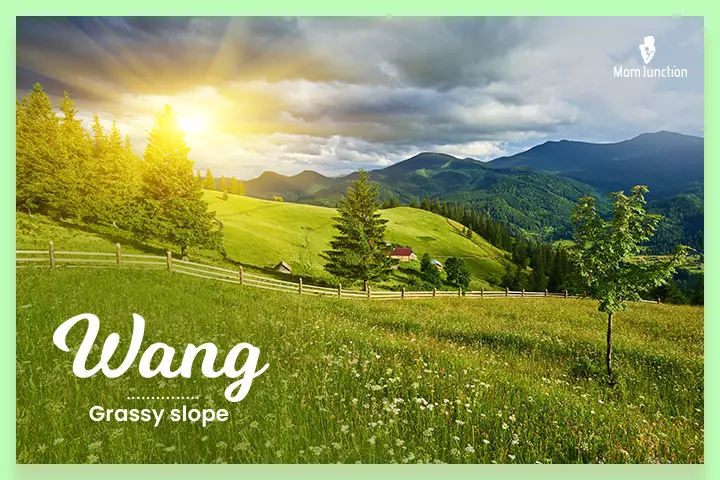
This is taken from Old High German word ‘wang’ or Old Norse word ‘vangr’ meaning ‘meadow’ or ‘grassy slope.’
 Trivia
Trivia98. Watland
This habitational name is derived from Old Norse word ‘Vazland’ meaning water and land. It refers to several farms of this name in Norway.
99. Westby
It refers to several farms of this name in Norway. It is a derivative of the word ‘Vestbyr,’ which is a combination of the Old Norse words ‘vestr’ meaning ‘west’ and ‘byr’ meaning ‘settlement.’
100. Westrum
This is from any of the farms in Norway named ‘Vestrom’ or ‘Vestrum.’ The name is derived from the Old Norse words ‘vestr’ meaning ‘west’ and ‘heimr’ meaning ‘homestead.’
Discover More Names
When you have to choose a name for your baby, a few hundreds of names may not be just enough. Keep digging our mine of baby names until you find that one precious gem.
Frequently Asked Questions
1. When did Norwegians start using last names?
It is believed that most Norwegians started using a last name in the 1900s. But the official law was passed in the year 1923 by the Norwegian parliament, requiring all Norwegians to use an official last name (9).
2. Can I change my surname in Norway?
Yes, you may change your surname in Norway by contacting the Norwegian Population Register.
3. Do Norwegians have two last names?
Norwegians have a predominant patronymic based on the father’s name. However, after 1850, the trend of taking a permanent surname took hold and by 1900, most of Norway had adopted the practice of using a permanent family name as a surname. They usually use the farm name or residence name as their surname (10).
4. What is the stereotypical Norwegian last name?
Surnames like Olsen, Hansen, Johansen, Berg, and Hagen are some of the stereotypical last names (11).
5. What do Norwegian last names often signify or represent?
Norwegian last names usually represent nature and the environment around them. Occupations and place names also may transform into Norwegian last names. Some people may use characteristic names too.
6. How are Norwegian last names passed down through generations?
The patronymic is used based on the father’s given name. In addition, a permanent family name is used as a surname (10). For example, if a man named Anders had a son Jon and they lived on Dal farm, the son’s name would be Jon Anderssen Dal. If Jon had a son named Knut and they lived in Li, the son’s name would be Knut Jonson Li.
7. Are there any famous or notable individuals with Norwegian last names?
Nobel Prize in Literature winner, Knut Hamsun; bestselling author, Jo Nesbø; ABBA lead singer, Anni-Frid Lyngstad; actor Bjørn Sundquist; and Olympic triple gold-medallist, Hjalmar Andersen are some of the famous individuals with Norwegian last names.
8. How do Norwegian last names differ from last names in other Scandinavian countries?
Other Scandinavian countries like Denmark, Iceland, and Sweden follow a similar pattern of naming as Norway. Their surnames are patronymic and they might adopt a place name as a surname.
9. How are Norwegian surnames representative of the country’s geography?
Norwegian surnames, when not patronymic, symbolize the places its bearers originated from, thus presenting a beautiful picture of the country’s landscapes. Some of these surnames include Aaberg (‘on the hill by the river’), Dahl (‘valley’), Fehn (‘meadow’), Haugen (‘hill’), Selland (‘willow farm’), Storstrand (‘large beach’), and Wang (‘grassy slope’).
10. What are the common suffixes in Norwegian surnames and what do they signify?
Before it became common practice to take on permanent surnames, Norwegians needed ways to tell apart those with the same first name. One of these ways was having patronyms or surnames based on one’s father’s name. These surnames ended with suffixes like ‘-sen’, ‘-datter’, and ‘-son,’ wherein ‘-sen’ and ‘-son’ denoted ‘son of’ and ‘-datter’ denoted ‘daughter of.’ Thus, Hans Sjulsen would be Hans, the son of Sjul, and Hans Gulliksen would be Hans, the son of Gullik.
Naming their baby is a huge milestone that excites every parent. However, with the myriad options available, most parents are confused about which first name and last name to choose. If you adore different traditions and customs, try Norwegian surnames, which are unique and provide a fascinating glimpse of the country’s rich culture and geography. With this extensive list of Norwegian surnames or last names provided, we hope to ease your burden of choosing the perfect name. These names are meaningful and may wonderfully enhance your child’s personality.
Infographic: Types Of Norwegian Last Names Or Surnames
Norway is a beautiful Scandinavian country surrounded by mountains, water bodies, and other natural scenic elements. Therefore, you can find Norwegian surnames indicating rivers, valleys, and mountains. Also, their rich culture and heritage are reflected in their surnames. Let’s look at the infographic below to learn about the types of Norwegian surnames. Illustration: Momjunction Design Team
Illustration: Popular Norwegian Last Names Or Surnames With Meanings

Image: Stable Diffusion/MomJunction Design Team
References
- Norway.
http://files.lib.byu.edu/family-history-library/research-outlines/Scandinavia/Norway.pdf - Origin, popularity and meaning of the last name EGE
https://en.geneanet.org/surnames/EGE - Origin, popularity and meaning of the last name GAARDER
https://en.geneanet.org/surnames/GAARDER - Origin, popularity and meaning of the last name KILE
https://en.geneanet.org/surnames/KILE - Origin, popularity and meaning of the last name KOLDEN
https://en.geneanet.org/surnames/KOLDEN - Origin, popularity and meaning of the last name MORKEN
https://en.geneanet.org/surnames/MORKEN - Origin, popularity and meaning of the last name OYEN
https://en.geneanet.org/surnames/OYEN - Origin, popularity and meaning of the last name SUND
https://en.geneanet.org/surnames/SUND - Norwegian surnames in America.
https://www.norsknamnelag.no/norwegian_surnames_america.php - Norway Personal Names
https://www.familysearch.org/en/wiki/Norway_Personal_Names - Norwegian Names
https://www.norwaydna.no/gedcoms-and-genealogy/norwegian-names-en/
Community Experiences
Join the conversation and become a part of our nurturing community! Share your stories, experiences, and insights to connect with fellow parents.
Read full bio of Shikha Thakur
Read full bio of Srija Chanda Burman
Read full bio of N Pravenchandra Singh








